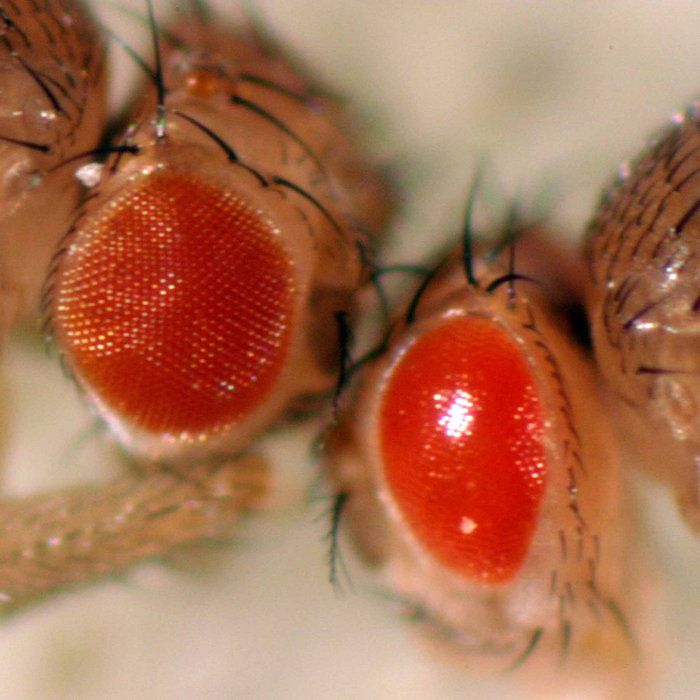The words that researchers use to describe their results can be harnessed to discover potential new treatments for Parkinson’s disease, according to a new study publishing March 2nd in the open access journal PLOS Biology by Angus McQuibban of the University of Toronto, Canada, and colleagues. The study employed an artificial intelligence (AI) system to identify an existing anti-cholesterol drug that has the ability to promote disposal of mitochondria, energy-making components of the cell which are damaged in the disease.

Credit: Angus McQuibban (CC-BY 4.0, https://creativecommons.org/licenses/by/4.0/)
The words that researchers use to describe their results can be harnessed to discover potential new treatments for Parkinson’s disease, according to a new study publishing March 2nd in the open access journal PLOS Biology by Angus McQuibban of the University of Toronto, Canada, and colleagues. The study employed an artificial intelligence (AI) system to identify an existing anti-cholesterol drug that has the ability to promote disposal of mitochondria, energy-making components of the cell which are damaged in the disease.
The full pathogenic pathway leading to Parkinson’s disease (PD) is unknown, but one clear contributor is mitochondrial dysfunction and the inability to dispose of defective mitochondria, a process called mitophagy. At least five genes implicated in PD are linked to impaired mitophagy, either directly or indirectly, and so the authors sought compounds that could enhance the mitophagy process.
Several such compounds have been identified, but most of them also cause harm to cells, ruling them out as drug candidates. That led the authors to ask whether the literature describing these compounds might lead them to other compounds, ones not previously linked to mitophagy enhancement but which are described with terms that also appear in papers that discuss the known enhancers.
Identifying patterns of such “semantic similarity” is one of the core skills of IBM Watson for Drug Discovery, an AI program run on a supercomputer that analyzes the published literature for patterns of key words, phrases, and juxtapositions. The team used the program to develop a semantic “fingerprint” of bona fide mitophagy enhancers, and then looked for similar fingerprints in the literature on a set of over three thousand candidates from a drug database.
The top 79 candidates were screened in cell culture against a mitochondrial poison. The three top candidates from that assay were then tested on several other mitophagy assays, which identified probucol, a cholesterol-lowering drug, as the compound with the best combination of effectiveness and likely safety. Probucol was also found to improve motor function, survival, and neuron loss in two different animal models of Parkinson’s disease (PD is primarily a movement disorder).
Probucol’s effect on mitophagy required the formation and action of lipid droplets, transient cell structures that help maintain mitochondrial integrity during stress, and that accumulate abnormally in Parkinson’s disease. Probucol is known to target ABCA1, a protein involved in lipid transport, and reduction in levels of ABCA1 reduced probucol’s ability to promote mitophagy, suggesting that ABCA1 is a likely mediator of the role of lipid droplets in mitophagy.
“Our study showcased a dual in silico/cell-based screening methodology that identified known and new mechanisms leading to mitophagy enhancement,” McQuibban said. “Given the linkage between lipid droplet accumulation and ABCA1, it seems likely that probucol enhances mitophagy through mobilization of lipid droplets. Targeting this mechanism may be advantageous.”
McQuibban adds, “In our study we used the AI-platform IBM Watson to efficiently identify currently approved drugs that could potentially be re-purposed as therapies for Parkinson’s disease.”
#####
In your coverage, please use this URL to provide access to the freely available paper in PLOS Biology: http://journals.plos.org/plosbiology/article?id=10.1371/journal.pbio.3001977
Citation: Moskal N, Visanji NP, Gorbenko O, Narasimhan V, Tyrrell H, Nash J, et al. (2023) An AI-guided screen identifies probucol as an enhancer of mitophagy through modulation of lipid droplets. PLoS Biol 21(3): e3001977. https://doi.org/10.1371/journal.pbio.3001977
Author Countries: Canada
Funding: This study was supported by the Canadian Institutes of Health Research (PJT-156186 to G.A.M.). The funders had no role in study design, data collection and analysis, decision to publish or preparation of the manuscript.
Journal
PLoS Biology
DOI
10.1371/journal.pbio.3001977
Method of Research
Experimental study
Subject of Research
Animals
COI Statement
Competing interests: The authors have declared that no competing interests exist.




